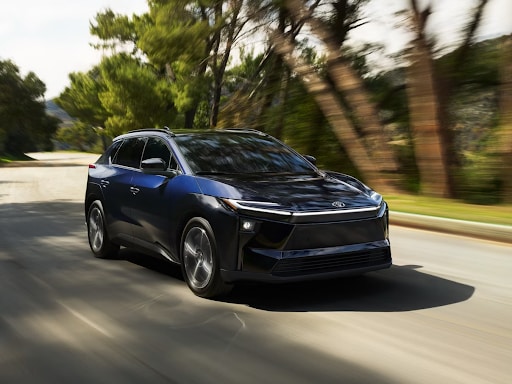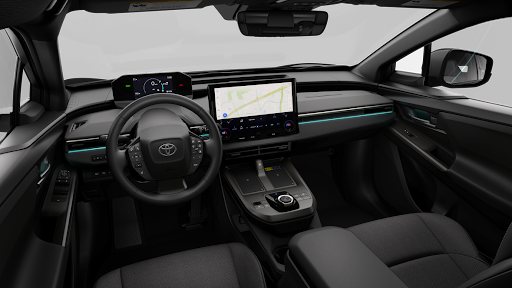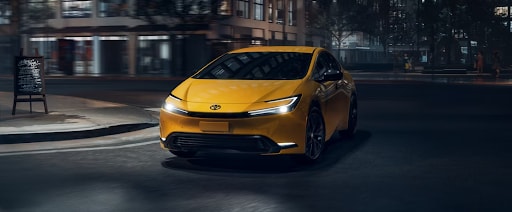
The Future of Commuting Starts at Toyota of Kirkland
As more Seattle-area drivers look to cut fuel costs and reduce emissions, Toyota’s lineup of hybrid and electric vehicles is making the transition easier than ever. From the Prius Prime plug-in hybrid to the fully electric Toyota bZ4X, there’s a powertrain to match every lifestyle and commute. Whether you’re a city driver tackling I-405 traffic or commuting from Bellevue to Redmond daily, Toyota of Kirkland, part of the O’Brien Auto Group, has options designed to balance efficiency, performance, and technology.
This guide breaks down the key differences between Toyota hybrid and electric models, helping you decide which powertrain is best suited to your commute — with insights into fuel economy, charging, performance, and cost of ownership.
Understanding the Difference: Hybrid vs. Electric
Before diving into specific models, it’s important to understand what sets Toyota’s hybrid and electric technologies apart.
-
Hybrid Vehicles (HEV):
Toyota hybrids, like the RAV4 Hybrid or Camry Hybrid, use both a gasoline engine and an electric motor. They automatically switch between power sources or combine them for maximum efficiency. There’s no need to plug in — just fill up at the pump and go.
-
Plug-In Hybrid (PHEV):
Models like the Prius Prime or RAV4 Prime go a step further, allowing you to charge the battery and drive short distances on electric power alone — ideal for short commutes.
-
Fully Electric (EV):
The Toyota bZ4X represents the next generation of zero-emission driving. It runs solely on battery power, offers instant torque, and requires charging instead of refueling.
Fuel Efficiency vs. Electric Range
If your daily commute is less than 40 miles, a plug-in hybrid like the Prius Prime could be the perfect middle ground. You can handle weekday drives using electricity and rely on gas for longer trips.
However, if you’re ready to cut out gas entirely, the bZ4X delivers up to 252 miles of EPA-estimated range, depending on configuration. For city commuters or those with access to charging at work, the bZ4X offers a smooth, quiet ride and zero tailpipe emissions — ideal for Seattle’s eco-conscious drivers.
Hybrids still excel when convenience is key. With EPA-estimated ratings exceeding 50 MPG in some models, Toyota’s hybrid lineup remains unbeatable for long-range fuel efficiency without charging stops.

Charging and Convenience for Seattle Drivers
Electric vehicles like the bZ4X can DC fast charge to 80% in about 30 minutes, perfect for a quick recharge during errands. For at-home charging, installing a Level 2 charger can replenish the battery overnight — and Washington State offers EV tax incentives to help offset the cost.
Meanwhile, Toyota’s hybrids eliminate charging altogether. For Eastside commuters facing unpredictable schedules, models like the RAV4 Hybrid AWD or Highlander Hybrid provide electric efficiency without range anxiety.
If you want flexibility, the Prius Prime offers both: plug in at home for up to 44 miles of all-electric range, then switch seamlessly to hybrid power for longer trips.
Cost of Ownership: Hybrid vs. EV
When comparing Toyota hybrid maintenance costs vs. electric, EVs generally come out ahead. Since they lack oil changes, spark plugs, or transmission fluids, electric vehicles require less maintenance over time.
However, hybrids typically have a lower upfront cost and greater availability across Toyota’s lineup. With rising fuel prices, both options deliver significant long-term savings compared to traditional gas vehicles.
Plus, Washington State offers EV tax credits and sales tax exemptions on qualifying new electric vehicles, making models like the bZ4X even more appealing for value-minded buyers.
Performance in Real-World Conditions
Electric vehicles offer instant torque, meaning faster acceleration from a standstill — ideal for highway merging and urban stop-and-go traffic. The bZ4X’s AWD system, for example, provides confident traction on rainy Seattle roads.
Hybrids, however, shine in versatility. The Toyota Hybrid Synergy Drive system adapts smoothly to both city and highway driving, using regenerative braking to recharge the battery when slowing down — a major benefit during Seattle’s rush hour traffic.
In winter conditions, Toyota’s available all-wheel drive hybrid models — including the RAV4 Hybrid, Highlander Hybrid, and Corolla Cross Hybrid — provide extra grip and stability, ensuring dependable performance in the Pacific Northwest’s mix of rain, snow, and steep terrain.
Technology and Connectivity
No matter your powertrain choice, Toyota ensures that drivers stay connected and entertained. Both hybrid and electric Toyota models come equipped with Apple CarPlay and Android Auto, allowing seamless smartphone integration for navigation, music, and messages.
Many vehicles also include Toyota Safety Sense™ 3.0, offering advanced driver-assist features like Dynamic Radar Cruise Control, Lane Tracing Assist, and Road Sign Assist — ideal for daily commuters navigating Seattle’s busy freeways.
Environmental Impact
When it comes to emissions, electric vehicles win hands down — producing zero tailpipe emissions and reducing overall carbon footprint. For drivers committed to sustainability, a fully electric Toyota is the cleanest choice.
That said, Toyota’s hybrid models are far from ordinary. They reduce fuel consumption by up to 50% compared to gas-only vehicles, offering an eco-friendly alternative for those not ready to go fully electric.
Together, these powertrains represent Toyota’s ongoing commitment to a carbon-neutral future — part of their global Beyond Zero initiative.
Which Powertrain Fits Your Commute?
Here’s a quick breakdown for local drivers:
Making the Switch with Toyota of Kirkland
At Toyota of Kirkland, part of the O’Brien Auto Group, our team is here to help you compare Toyota hybrid vs. electric models side by side. Whether you’re exploring a RAV4 Hybrid for everyday reliability or considering the bZ4X for full-electric innovation, we’ll help you find the perfect powertrain for your commute.
Our dealership proudly serves drivers across Kirkland, Bellevue, Redmond, and the Greater Seattle area, offering flexible financing, local EV charging insights, and Toyota Certified Pre-Owned options for eco-conscious buyers.
Visit Toyota of Kirkland today to experience the future of Toyota electrification — designed for Seattle commuters who demand both performance and sustainability.
*Penned by AI, polished by humans
